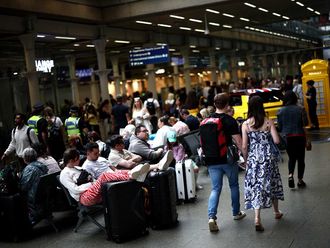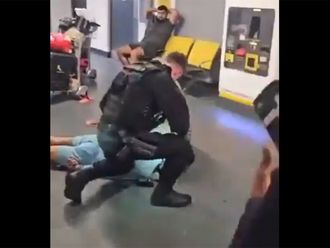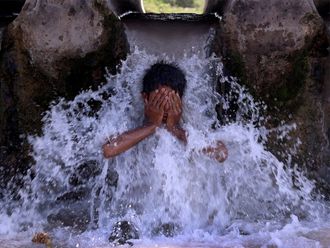Lisbon: As Nato leaders gather in Lisbon Friday and Saturday to review a new strategy for the next decade, a new role for Russia looms large and is likely to electrify the alliance´s 61st summit.
The Lisbon summit, coming after nine years of an unsuccessful war in Afghanistan, hopes that fortunes for the alliance in the war-torn country will be reversed, especially that Russia, the core of the former Soviet Union against which Nato was established 61 years ago, said that it was willing to help its former nemesis achieve higher levels of security.
Russia´s likely new role would send signals that Nato is gradually turning into a global organisation, a status that divides the members of the 28-member alliance. Britain and France are for it, but Germany and central European countries with terrible memories of the now defunct Soviet Union, are against it.
However, according to Alexander Stubb, Finland´s foreign minister, Russia has radically changed its attitude toward the USA, Nato and the European Union.
”At the moment, we are enjoying a golden age in our relations to Russia”, Stubb told the Finnish media. ”In earnest, as far as I can remember the relations between the US and Russia have never been this close after the Second World War. The change is partly attributable to the US administration’s new attitude towards Russia, and partly to the financial crisis,” he said.
However, the most important individual reason for the change is the increasing influence of China and the fact that the world is genuinely becoming multipolar.
”Russia has to look for partners while it is aware of its dependence on their support”, Stubb said, quoted by Finnish daily Helsingin Sanomat.
Another crucial theme for the summit will be how to find acceptable solutions to a new strategy that calls for big cuts in the number of staff and command bases while extending security protection to Europe and achieving an elusive in Afghanistan.
Financial pressures are driving the member countries towards more intense defence cooperation and Nato has floated the suggestion that the number of staff be cut by 4,000 to bring it down to 9,000 and to close bases to avoid duplication of work and eliminate costly and stifling red tape.
But while the cut in the numbers will be relatively easy to make, the decision about the bases and command offices to be closed will prove much more difficult.
According to reports, the cuts will reduce the number of Nato agencies that look after logistics, communications, research and training from 14 to only three.
Anders Fogh Rasmussen, Nato Secretary General, in November told the BBC that Nato members had to pool their resources in order to work more efficiently.
The restructuring would mean fewer high-ranking jobs for officers from different countries.










_resources1_16a30b3523c_small.jpg)

